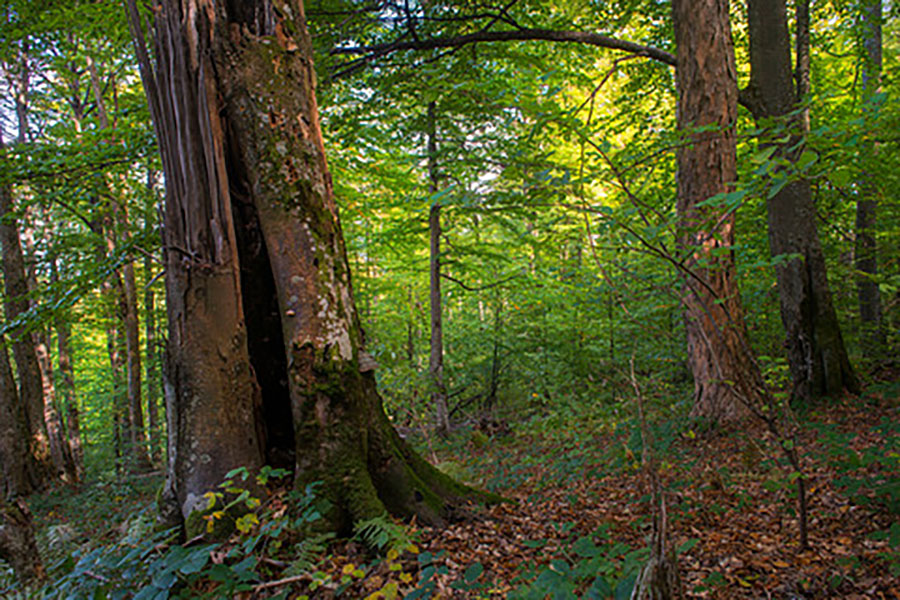Following an opinion piece by by Schulze et al. (2020) we challenged a number of points raised that are either inaccurate or questionable.
Schulze et al.'s opinion compares differences in carbon storage between ‘unmanaged’ and ‘managed’ European forests, and they state, ‘(f)or unmanaged forests, the contribution to climate change mitigation through storage is very small or close to nil’. However, no evidence is cited to support this contention, which is inconsistent with several published empirical studies and theoretical analyses (Erb et al., 2017; Houghton & Nassikas, 2018; Lutz et al., 2018). In order to support effective climate policy, we are responding to identify some of the errors of omission in the Opinion.
Based on UNFCCC accounting rules, climate mitigation depends on the relative carbon stocks in the biosphere and atmosphere, not on sequestration rates as annual flows. In order to minimize the amount of carbon in the atmosphere, the cumulative carbon in trees and soils must be maximized (Mackey et al., 2020). The maximum carbon stored in forests occurs when forests are allowed to continue growing, a management practice called ‘proforestation’ (Moomaw et al., 2019). As the harvest rotation period is shortened, less carbon is stored in trees averaged over the harvest period intervals, leaving more in the atmosphere (Sterman, Siegel, & Rooney-Varga, 2018). Each harvest also releases additional biogenic and fossil fuel carbon emissions from the harvest process (Harris et al., 2016).
Article authors
Zoltán Kun
Dominick DellaSalla
Heather Keith
Cyril Kormos
Bernard Mercer
Additional authors
Reference
Kun Z., DellaSala D., Keith H., Kormos C., Mercer B., Moomaw W.R., Wiezik M., (2020), Recognizing the importance of unmanaged forests to mitigate climate change, GCB Bioenergy, https://doi.org/10.1111/gcbb.12714






